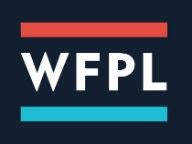Faculty News
—
In an op-ed, NYU Global Research Professor Ian Bremmer explores the positive economic trends coming out of Africa
—

Excerpt from TIME -- "It was just a couple of years ago that 'Africa Rising' was a hot story, as a continent best known for tragedy gained attention for rapid economic growth and real hope. The slowdown of the global economy and slumping commodity prices have dampened that enthusiasm a bit, but there are still positive longer-term trends across Africa that deserve attention."
Faculty News
—

Excerpt from TIME -- "It was just a couple of years ago that 'Africa Rising' was a hot story, as a continent best known for tragedy gained attention for rapid economic growth and real hope. The slowdown of the global economy and slumping commodity prices have dampened that enthusiasm a bit, but there are still positive longer-term trends across Africa that deserve attention."






















